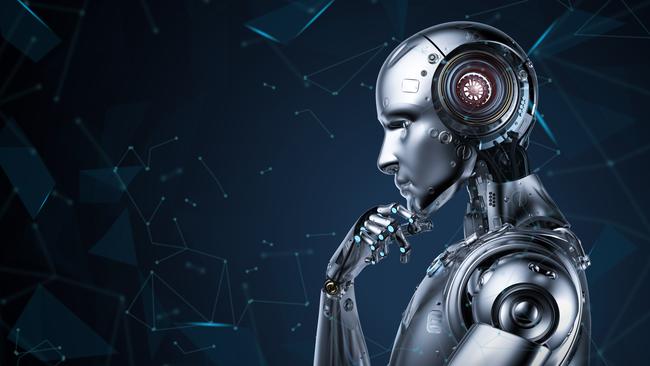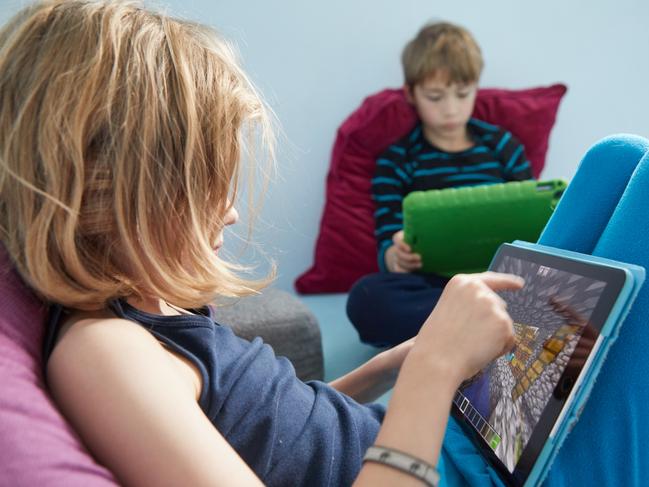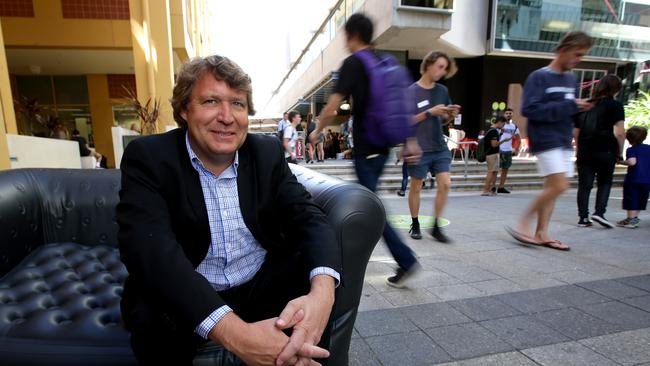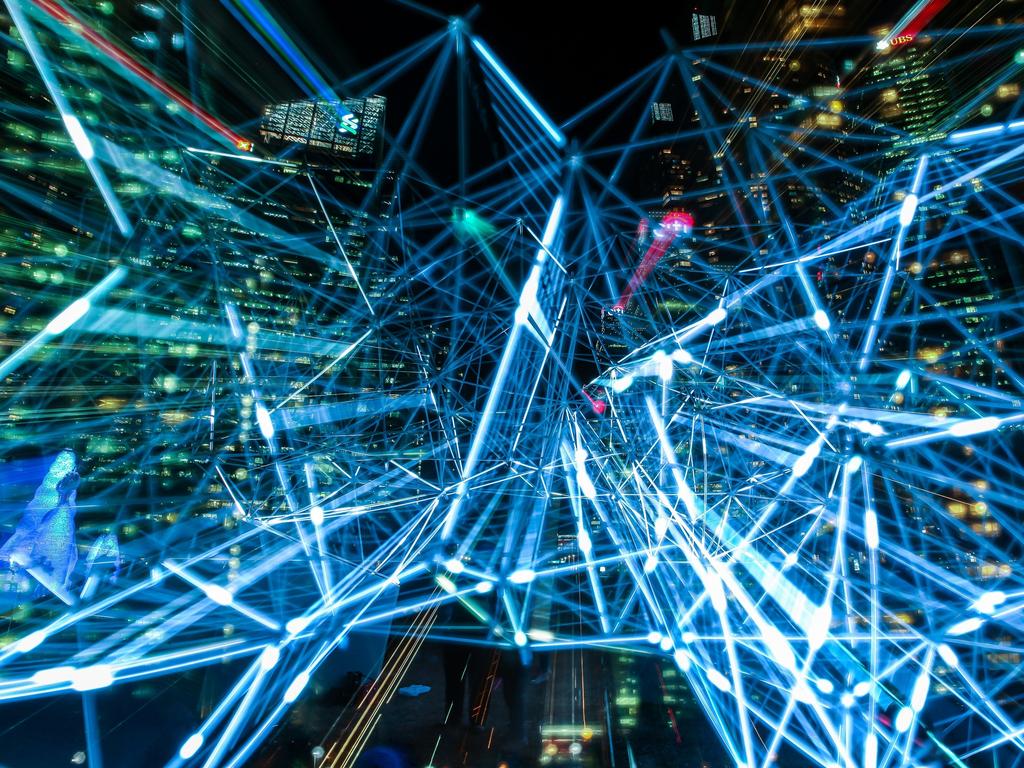AI is about to transform education. Are we ready?
ChatGPT technology will become the spellcheck of this generation. But as AI algorithms evolve, we need to ensure our digital native kids have the brainpower to beat the bots — not be controlled by them.

“Artificial intelligence (AI) is set to revolutionise the way we work and study, bringing about significant changes to the way we approach tasks and learn new information.
“In the workplace, AI is already being used in a variety of ways, from automating repetitive tasks to analysing large amounts of data to improve decision making.
“In the field of education, AI is being utilised to personalise learning experiences for students.’’
The top of this article was written by a bot. In 60 seconds, ChatGPT – artificial intelligence that will warp the way we learn and earn – produced a pedestrian yet passable 300-word news report, three times faster than the swiftest touch-typist.
Today’s children are growing up in the Age of AI, an era of social transformation on a par with the advent of the printing press, the car and the World Wide Web.
Already, algorithms can write poetry, tell jokes, paint portraits, hold a conversation, create videos and write code. The output is so lifelike that Google stood down a software engineer who declared its AI system had grown sentient – and might even have a soul.
Infinitely patient, AI can teach maths, science or languages by blending education with entertainment. For people with a disability, it can gift the power of speech, sight and mobility. AI helps doctors detect disease, fends off cyber attacks, and sends drones to safeguard farm animals.
But as AI algorithms evolve, we need to ensure our “digital native” children have the brainpower to beat the bots; to control rather than consume technology.
How can we prevent AI from rewriting history, spreading propaganda, or spying on us?
Will automation dull creativity, or spark imagination?
Professor Simon Lucey, director of the Australian Institute for Machine Learning at the University of Adelaide, says ChatGPT technology will become “the spellcheck of this generation’’. “Like it or not, it will be integrated in the next generation of word processors,’’ he told Inquirer. “It’s a mind-blowing productivity tool.’’

The clumsily named ChatGPT – based on an acronym for Chat Generative Pre-Trained Transformer – was let loose by OpenAI at the end of last year. Microsoft this week pumped $14bn into the company, with plans to integrate AI into its existing software, including Word and PowerPoint.
Professor Lucey warns that AI-generated text can’t always be trusted, and calls for “strong legislation and ethics’’ governing its use. “It can look good but it’s very hard to fact check what it’s producing,’’ he says. “You can’t believe everything on the internet, and ChatGPT has the same issue. You need a human in the loop.’’
Educators are equally aghast and excited by the implications of an automated essay-writing technology that prompted a “Goodbye homework!” tweet from billionaire inventor Elon Musk.
US researchers have reported that ChatGPT can correctly answer half the questions in the US medical licensing exam – just shy of the 60 per cent pass rate.
Closer to home, CQ University Dean of Law Stephen Colbran reckons the chatbot can write a credible assignment on Australian contract law.
Australian Secondary Principals’ Association president Andrew Pierpoint has warned that AI will render students “academically lazy’’, and demands guidelines from education authorities.
But University of South Australia professor George Siemens, who researches the use of AI in education, hails the chat technology as “a watershed moment in human intellectual history’’ that must be embraced, not blocked.
“It gives us an extraordinary opportunity to amplify human intelligence,’’ he told Inquirer. “Let’s find ways to teach students to use it to improve learning. Our existing education system favours people regurgitating information back to teachers. Now teachers should create learning activities that require students to use it.’’
NSW, Tasmania and Queensland plan to ban the use of ChatGPT in schools, but may have trouble enforcing this rule outside school hours given that traditional anti-plagiarism software still can’t detect its use.

Teachers will need to keep a closer eye on assessments, perhaps even reverting to old-school handwritten essays produced in class to ensure students’ work is original.
On the NSW central coast, Avondale High School maths teacher Josh Gerakios describes the chatbot as a “game-changer as an in-class assistant’’. “Need a quick quiz created on 10th grade linear equations to keep the students busy who finished their work early? Done!’’ he wrote on LinkedIn, adding: “Would you like worked step by step solutions with that?”
Kristy Kendall, the principal of private girls school Toorak College in Melbourne, has been bombarded with questions from teachers about how to set essay topics for homework, or check for plagiarism.
“Our true power as teachers is to teach students how to utilise technology responsibly and to their advantage; and there is a new tool in town,’’ she wrote on LinkedIn. “ChatGPT has not changed the brainstorming stage, the guided discussion or the discovery of learning. It has substantially changed the research stage and it therefore can change the work that can be produced, but that is still a student’s choice.’’
Former Google vice-president and Microsoft executive Hugh Williams is leading a training initiative for teachers and students, called The Day of AI, backed by the CSIRO and the University of NSW. He insists that users need to question information gleaned through AI.
“How does it come to its point of view; is it reliable?’’ he told Inquirer. “ChatGPT is just a model that generates plausible responses given the information it’s trained with. You can provide a couple of words and a little bit of context, and it will provide a lengthy and plausible text. If it’s got context about flat earth theory, it will provide a plausible text about flat earth theory.’’
Williams says the rise of AI makes it all the more important for students to be critical thinkers’. “They need to take a piece of text and realise if it’s factual and supported by evidence, or if it’s biased,’’ he says. “More work needs to be done in the classroom, and fewer things need to be sent home where they can take shortcuts. This will require more work from teachers.’’
As universities and schools scramble to stamp out ChatGPT cheating on assignments and tests, industry is embracing intelligent tech to boost productivity. AI is widely used to target advertising and marketing messages to customers. It provides the brainpower for fruit-picking robots and autonomous miners. In medicine, it detects disease and identifies new drugs. AI “authors” are writing blogs for websites and Instagram influencers, while in England a chatbot “lawyer’’ helps people appeal against parking fines.
What could possibly go wrong? The same AI used to check if drivers are speeding or wearing their seatbelts can be misused by authoritarian regimes for surveillance.
Social media powered by AI algorithms can spread both inspiration and misinformation, making “fake news” and “deep fake’’ images even harder to detect. A coding glitch – or hackers – could cause a car crash, shut down a power plant, or misdirect a surgeon’s scalpel.
Professor Siemens predicts AI will become “smarter and faster’’.
“There are real risks,’’ he says. “We know that it’s used for propaganda, and state actors will use it to try to swamp and overwhelm conversation and politicise countries. But it’s a stunningly powerful tool, and if we ban it, block it or minimise its use, we’ll miss out on opportunities.’’







To join the conversation, please log in. Don't have an account? Register
Join the conversation, you are commenting as Logout